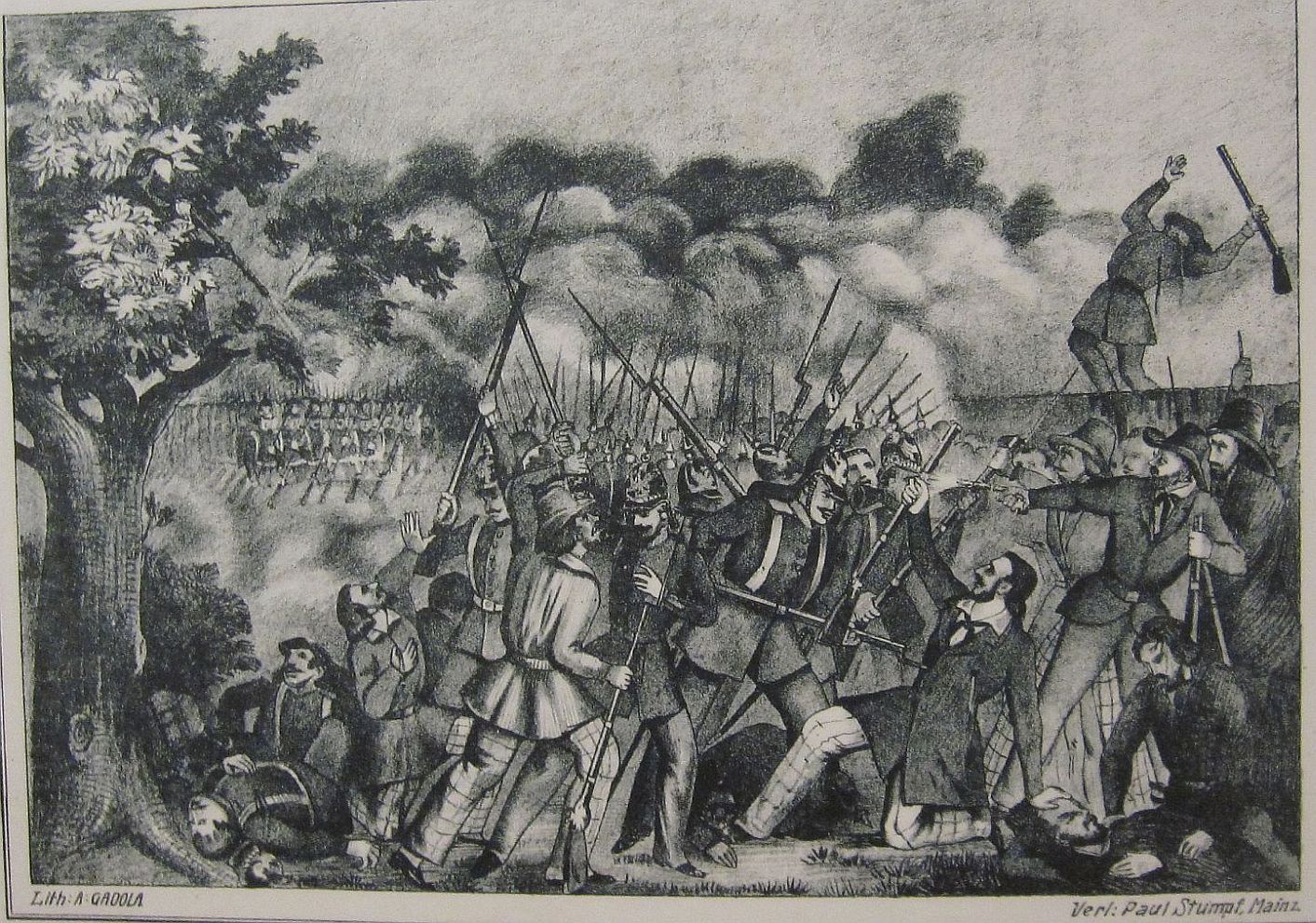I just finished reading The Tiger’s Wife by Tea Obreht, wherein I was reminded that European history is … complicated.
Case in point, the 1848 uprisings in Europe. Or should I say, revolutions? Rappaport calls it 1848: Year of Revolution in his 416-page (not counting index and footnotes) book on the subject.
Several times now, after I’ve read excerpts of my novel to one audience or another, someone invariably comes up afterwards and says: “I had no idea there was a revolution for democracy back then.”
Back then? Right, mid-19th century Europe, the time in the U.S. of Emerson and Thoreau, of Alcott and Margaret Fuller, the transcendalist movement and antebellum period of President Zachary Taylor. Back in 1848, Germany was not even a country. That didn’t happen until 1871. Back then, the German-speaking regions of Europe were comprised of around 60 feudal states left over from the Holy Roman Empire, each with its own king, prince or duke.
The revolutions for a  constitutional government, the right to assemble, freedom of the press, the right to vote, etc. spread not only in those duchies, but all across Europe. I’ve read many different accounts of that time, but a book I encountered recently: The Illustrated History of the 19th Century, puts it most succinctly:
constitutional government, the right to assemble, freedom of the press, the right to vote, etc. spread not only in those duchies, but all across Europe. I’ve read many different accounts of that time, but a book I encountered recently: The Illustrated History of the 19th Century, puts it most succinctly:
1840-1849: INSURRECTION AND REVOLUTION
Revolution characterizes the 1840s. … Nationalism and liberalism … simmer until, in 1848, they finally erupt in simultaneous revolutions throughout Europe. Famine and hardship too are key causes, often generated by the harsh social effects of industrialization. … [Revolts against King Ferdinand II in Sicily and Louis-Philippe in France] spur on a revolt in Austria leading to the resignation of Prince Metternich (1773-1859), the conservative and repressive chancellor of state. Further revolts erupt in Venice, Prussia, Poland, Milan, Hungary, and Parma against Austrian rule, as a revolutionary mood spreads throughout Europe. Pope Pius IX is forced to grant a constitution to the Papal States, but eventually has to flee to Rome. … The ending of the liberal movement in the German states sends a wave of immigrants to Wisconsin.
And Ohio, Illinois, and other U.S. States, I might add. These “liberal” scholars, lawyers and intellectuals came to the U.S. just in time for the anti-abolition fervor that would give rise to the Republican Party. 1848 revolutionary Carl Schurz was a key friend of Abraham Lincoln. So the year of revolution may have occurred across the Atlantic, but its after effects helped transform our country.
